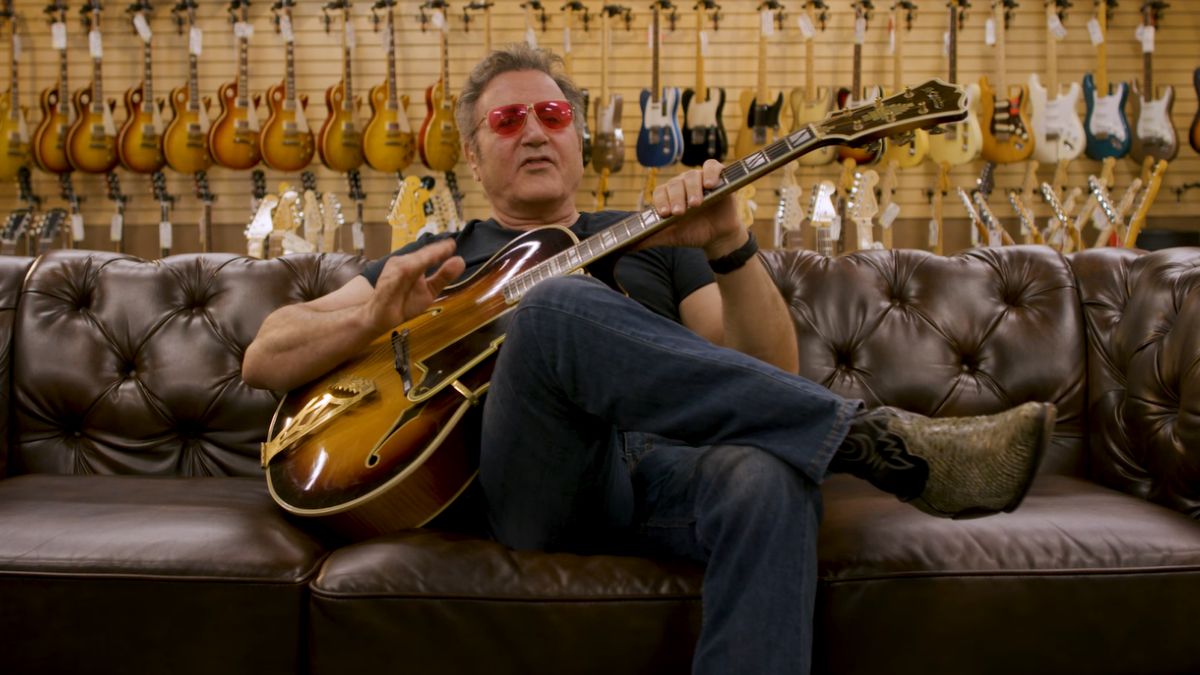Conversation with Broken Hope Guitarists Jeremy Wagner and Chuck Wepfer
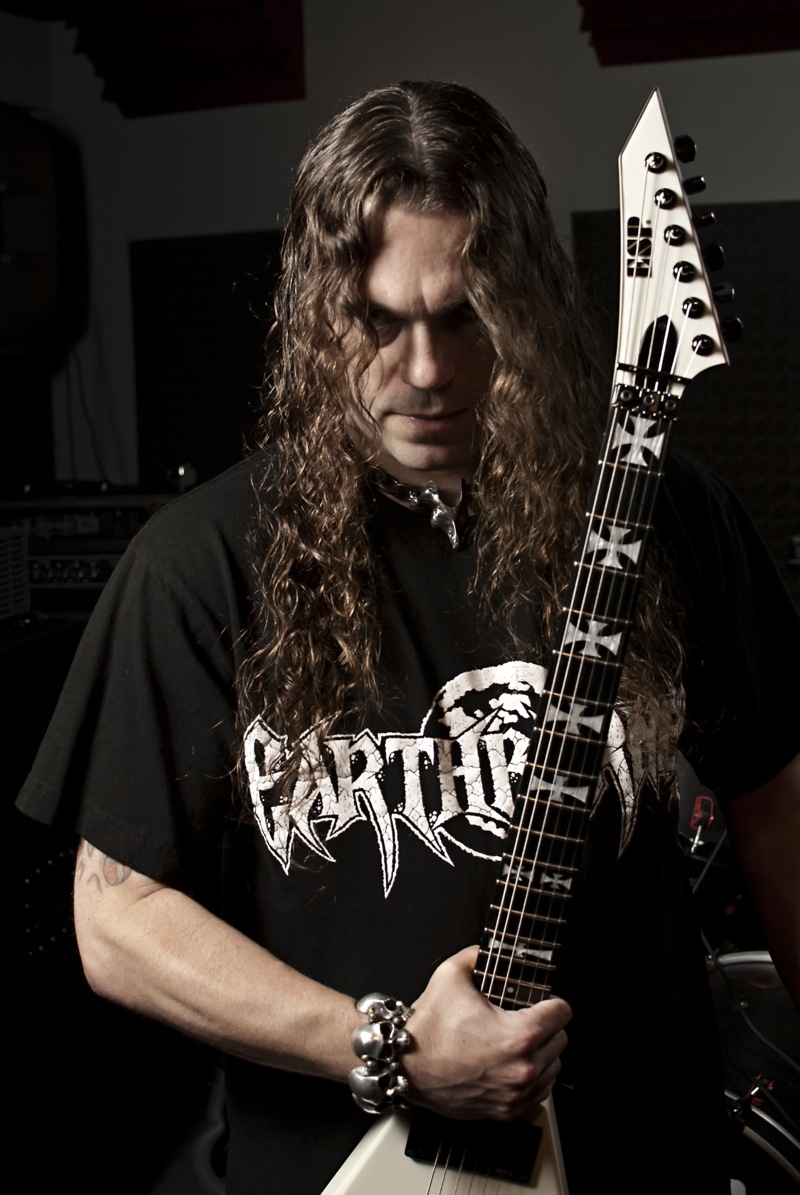
[GW EDITOR'S NOTE: In the time since this interview was conducted, Broken Hope dropped off the Deicide tour.]
Founded by guitarist Jeremy Wagner, Chicago-based death metal band Broken Hope began in 1988, back when extreme metal was on the rise.
They achieved acclaim with their first few albums, including Swamped In Gore, The Bowels Of Repugnance and Repulsive Conception, and after two more studio releases, they disbanded in 2002.
After a long hiatus, they returned in 2011 and released their sixth studio album, Omen Of Disease, October 1. They’re just about to finish a North American touring run as support act to Florida death metal giants Deicide.
A few weeks before the album’s release and touring cycle began, I caught up with Jeremy Wagner for a chat about the new album, tour, gear and all things Broken Hope. Guitarist Chuck Wepfer also chimes in. Read my review of the Los Angeles show of the Deicide/Broken Hope tour HERE. For more about Broken Hope, visit their official website HERE.
GUITAR WORLD: These are exciting times for Broken Hope. Omen Of Disease is out after a long gap between albums. How are you feeling at this point?
Jeremy: I’m feeling really good. Around 2002, when Broken Hope went on a hiatus, during the 10 years when we were not active, I was still writing heavy material. After our last album, Grotesque Blessings, I planned to write a sixth Broken Hope album at that time, and I even had a name for it, "The Flesh Mechanic."
Get The Pick Newsletter
All the latest guitar news, interviews, lessons, reviews, deals and more, direct to your inbox!
I had demoed roughly four or five songs with just guitars and drums. But then I just couldn’t seem to keep the lineup straight or have the right personnel, and that’s when I officially put the band on hold. So being back now with this lineup makes me extremely happy. I keep saying I wish I had this lineup in the '90s when we were younger and not as wise and experienced as we are now.
Everyone’s just enthusiastic, happy and driven to be the best they can for Broken Hope. It not only shows when we play live but also with the new album. I think it’s the strongest material we’ve had to date. Going back to the "Flesh Mechanic" sessions as I call them, that material, I’m very happy to say, most of it made it on to the new album. There are a number of riffs that I carried from those recordings in 2002 to now.
Jeff Hanneman had said last year that he had a riff on Slayer’s last album that he had in storage for 20 years, and riffs just sometimes have to wait until they find their place in time in a band’s discography. So I’m really happy to salvage some riffs, have a new album and have Broken Hope back stronger than ever. Plus, ‘The Flesh Mechanic," which, as I said, was my desired album title, made it as a song title on the new album. So I guess you could say I feel a lot of satisfaction and fulfillment right now, on a lot of levels.
Is it fair to compare this to anything you've done in the past, or is this a new start for Broken Hope?
Jeremy: I think it’s a combination of the original formula of Broken Hope, which is, I don’t want to sound arrogant, but, the Jeremy Wagner element. I’ve always been the dude who wrote the lyrics for the band, and outside of Shaun Glass, I’ve written most of the music on all the albums. The things that haven’t changed are firstly my approach to the horror-oriented lyrical themes and then the fact that I still tune my guitar to D and strive for a really brutal guitar tone.
I’m just a sucker for grindcore and heavy, badass breakdowns. So I still just write music like that. But that said, I think the new album is very contemporary with its music and the production. We had James Murphy mix and master the album, the great James Murphy of Death, Obituary and Testament fame. He brought a really polished and razor-sharp production to this album. I think this album is louder and more ferocious than our previous efforts, and also, having Chuck Wepfer in the band, he has brought a new level. He has raised the bar for us in terms of guitar solos and dynamics.
We probably did more solos on Omen Of Disease than the first five albums combined. It makes for definitely a more exciting Broken Hope sound, without taking away any brutality. When you think of a band like Carcass putting out great albums like Necroticism and Heartwork, those guys had this amazing dynamic where they took brutality but injected these stellar, tasty guitar solos and pulled it off.
I think that’s something Broken Hope accomplished for the first time on this album, bringing solos and just flat out relentless brutality, and marrying them. It brought something new to the Broken Hope table, but one thing we always felt was to be the heaviest goddamn death metal band around (laughs). So the original recipe is there, but there’s also new things brought to the table. I think it’s the best of everything.
It’s funny you mentioned Carcass. I interviewed Jeff Walker a couple of hours ago.
Jeremy: Oh, that’s fucking awesome! That’s one of my favorite bands, man, to this day!
Their new album is so good. I don’t know if you’ve heard it.
I have heard it! This is a great year for death metal. It’s so funny, but it’s almost as if this genre is returning to a grand level like it did in ‘89 and ’90. All these bands, Carcass, Broken Hope, Autopsy and many, many other bands have already this year released a bunch of fantastic albums. The scene is so strong, the genre is strong, and we have bands like Carcass coming back with some of their best material till date! It’s really freaking cool, you know.
You said you have your other guitarist, Chuck, with you over there. Why don’t we bring him into the interview? Chuck, what was it like to work on this new Broken Hope album?
Chuck: It’s really cool. It’s an honor to be involved. It’s my first record with Broken Hope, obviously. I had a great time making the record and doing the solos for it. It was a perfect fit, I should say.
Jeremy: Chuck’s approach toward the solos is pretty interesting. It was really organic. In fact, I sound like a dumbass because I thought that Chuck pre-wrote a lot of solos, but he just told me before this interview that a lot of the solos were written by him on the spot, in the studio.
Chuck: Yeah, that’s my approach; 95 percent of the solos, except for one little lick, I came up with on the spot in the studio. I do it that way because I just like to start fresh. Everybody’s got their way of approaching their own solos in the studio, and this is my way.
Jeremy: I was surprised to hear that [laughs], but I’m very impressed with this young lad.
You’ll be on a North American run as support act to Deicide by the time this interview gets posted. Have you toured with them in the past?
Jeremy: Yes, we toured with Deicide in 1995. Upon the release of our third album, Repulsive Conception, the first tour we did for that was with Deicide and we were really excited because we had toured on the first two albums, but not too many bands were as big as Deicide back then. Around that time they had some golden years where they were really one of the biggest death metal bands in the world.
At that time, supporting Deicide was exciting for Broken Hope because Deicide were really controversial. They always drew a lot of people. They had a lot of buzz during their first three albums, and having that opportunity to tour with them was great. It was also the first time Broken Hope had a tour bus and we shared that bus with Deicide. I’ve got to tell you, I remember that tour because with Omen Of Disease, we have a DVD that’s a documentary of the history of Broken Hope. It’s our 25th anniversary this year. I formed the band in high school in 1988, and we actually talk about that Deicide tour.
As excited as we were, we were also kind of scared because we really thought at the time that Glen Benton was the incarnation of Satan [laughs], and the guitar players the Hoffman brothers, who are no longer in the band, unfortunately. They were such huge guys and they just looked menacing, man. Any time I went to a Deicide show before we ever toured with them, they were just this band that held this evil, intimidating presence on stage and they were something to be reckoned with. But as soon as we started off doing the first show with them and shared the bus, we got along great and that was one of the best tours we had ever done. So that was some time ago and we are back again supporting Deicide. Who knows, maybe we can reignite some of that magic in 2013 and bring a lot of fun and excitement for the fans. It’s going to be really kickass, man.
Deicide, as you said, have that whole controversial element to them. You guys never had that. You’ve pretty much been all about the music, with a horror-based theme. But looking at Deicide’s success and touring with them back then, were you ever tempted to do something controversial with your band?
Jeremy: Well, the worst thing I ever thought of, maybe not controversial, but some of the lyrics I’ve written in the past have been over-the-top and definitely have caused a controversy. On our second album, The Bowels Of Repugnance, Canada first refused releasing that particular CD just because of the artwork. And honestly, the artwork wasn’t even that over-the-top. It was just human bodies naked, being absorbed and digested in this huge underworld digestive system. There are worse covers than that out there. But we had that, and then we the song called "He Was Raped," which was a hypothetical story of Jesus being crucified, thrown in a Roman prison and gang-raped much like you hear about with modern day prisons.
We had some real heavy-duty Bible-fucking backlash on that stuff, but we’ve never intentionally done anything to go, "Hey, look at us! We’re shocking!" The only thing I’ve ever wanted to do is to have the budget personally or from a label on a major level where I could actually bring a production to the stage where we’ve got a horror house, Rob Zombie-type shit on stage. If I could have animated corpses or even some type of video screen behind us with custom-made horror-themed imagery, basically to bring a horror movie on stage, it would be cool just for the entertainment factor, again, not to "shock" anyone or be Alice Cooper, but just to one entertain and two to convey the lyrical content.
So to answer your question, we’re a death metal band purely for the music but we would also like to bring something visual to stage on a large scale. May be some day we can do that. I need the budget [laughs] and the right venues. But other than that, like you mentioned, it’s always been about the music first and we’re making an impact only with the songs we write, that give a sonic bombardment live and on the albums. We let the music do the talking, you know.
In terms of your guitar playing, how are you matching up to this young shredder guy you have with you right now? How have you developed as a guitar player and how did you work with Chuck?
Jeremy: Well, our approaches are a little bit different. People have asked me whether I’ve done any leads on the new album. I’ve never really been a lead guitar player. I’ve always been this rhythm machine, but with that said, a lot of people don’t know that I took music theory classes in college where I learned how to read music, learned circle of fifths, chord patterns and what not. From there I went on to mastering arpeggios, modes, speed runs and that type of stuff. I still rehearse all that stuff at home once a day, not just to keep my chops up but for dexterity and just to warm up.
So there’s a real technical aspect to the Jeremy Wagner guitar approach, the stuff that I do behind the scenes to keep myself as an "accomplished" guitarist. But in Broken Hope, I’m really all about the riff. It’s like that quote, "The power of the riff compels you."
That’s how it is for me in this band, making the riff and the goddamn hook super heavy and catchy. Whether or not you like Pantera or not, you listen to vintage Pantera like Far Beyond Driven and Vulgar Display Of Power, that’s all about hooks. Even old Carcass. Bands like that have inspired me because they’re always had something catchy and heavy to offer, the shit that sticks in your head, the type of riff that you makes you want to slam your face through the wood of your desk [laughs]. That’s what I’m all about. I just love heavy riffs and catchy stuff. I also like dark harmonies that really get into your brain and stick there. So that’s me, I’m a riff writer, I’m an architect of the death metal songs that we write musically.
Chuck, when he first came to us, I had never met him before. Our bass player and Chuck were friends, and he brought Chuck into the mix. Chuck came in, and he had already learned five songs, I don’t know how, because I didn’t teach him a damn thing. And I’m not talking just the rhythm parts. Some of the stuff on the Omen album are pretty damn technical and he had it down, and he had the solos down note-for-note. That really impressed me and Chuck is a guitar teacher as well. He’s a little more accomplished. Despite my arpeggio, modes and speed runs, music theory, education and skills I have, he’s more of a guitar player than me. I’ve said it before, he’s like Swisgaar from Dethklok [laughs] and his girlfriend is his guitar.
Chuck: Well, basically my approach is, I want every solo to sting. I want it to be like a mini-song, you know, and not just wanking at 200 BPM. It has to tell a story. For example, someone who influenced me a lot during the making of this record was Ralph Santolla who played with Deicide and Obituary. I really like his solos as they are like mini-songs. That’s my approach, and I teach students as well. But yeah, basically I want to serve the song with my solos.
Could both of you tell me your gear setup?
Jeremy: I’ve been using ESP guitars for about just as long as I’ve been in Broken Hope. In fact, Matt Masciandaro, the CEO and president of ESP appears on our DVD, which is really awesome because Matt has been a friend of mine and has believed in me. Mind you, Andrew, they’ve got Metallica, Slayer and some of the biggest bands in the world as the signature artists on their roster. They’ve got mid-level bands that are still bigger than Broken Hope and have signature guitars. But one thing that ESP has always done is recognizing me as a guitar player and Broken Hope.
They’ve endorsed me from the get-go and believed in me. That means a lot, because Broken Hope is not the biggest band in the world [laughs] and we play really extreme music. But to have that belief from a president of such an established guitar company means the world to me. Part of my royalty to ESP is not only the belief and investment they’ve put in me over the years, but also I love the instrument. In my opinion, they manufacture the best guitars in the world.
Aesthetically I just love the way they feel and look, and I’ve probably got around 22 ESP guitars, most of them stock models of various types over the years. Some don’t even exist anymore in their catalog, and the rest are all custom made. So ESP guitars are all I use, and then I use EMG 81s and 85s for pickups. I think EMG make the best pickups as well. I just switched over to a new amp in the last year. I’m using the Fractal Axe FX 2, and for me personally, that has got to be the best guitar amp I’ve ever used in my life. It’s so diverse, it’s so freaking heavy. Like I said, the power of the riff compels me. From the time I was 17 years old and started this band, to this day, I strive for the heaviest guitar tone possible. The Fractals came into my life 25 years after I used a dozen different amps on tours and albums. The Fractal might be the ‘be all, end all’ for me. Outside of that, I’m using Matrix Power Amp.
They are suited for the Axe FX. They’ve got such a clean signal and no interference. It’s like they were made for the Fractal. I tried some different power amps before with the Fractal but they actually seemed to suck the tone away. At NAMM this past January, Devin Townsend, Dino Cazares and Jeff Kendrick, all three of those guys told me personally that if I’m using Axe FX 2 I’ve got to get a Matrix power amp. It’s made for that signal. There’s something about it. They’re super loud and super quiet without affecting the tone. And they were right! So I got that power amp, and I’m using Mesa cabinets. I’ve been using them for about a decade. I love their sound. Then I use DW strings and Line 6 wireless. That’s an overview of my rig and my gear. Right now, knock on wood, I couldn’t be happier. But we’ll see. You never know, there might be a heavier tone somewhere out there (laughs).
Chuck: Well, I use ESP guitars, EMG 81s and 85s. I use the V-shaped SP2 and the N-1000 mainly for Broken Hope and I love those guitars. They sound great, plus you can throw them against a brick wall and they still work! And I use Fender EVH 5153s. It’s a great amp. It’s loud and the clarity is there. It’s one mean amp [laughs].
Jeremy: And also, we both tune to D and we use 12-gauge strings.
Andrew Bansal is a writer who has been running his own website, Metal Assault, since early 2010, and has been prolific in covering the hard rock and heavy metal scene by posting interviews, news, reviews and pictures on his website — with the help of a small group of people. He briefly moved away from the Los Angeles scene and explored metal in India, but he is now back in LA continuing from where he left off.
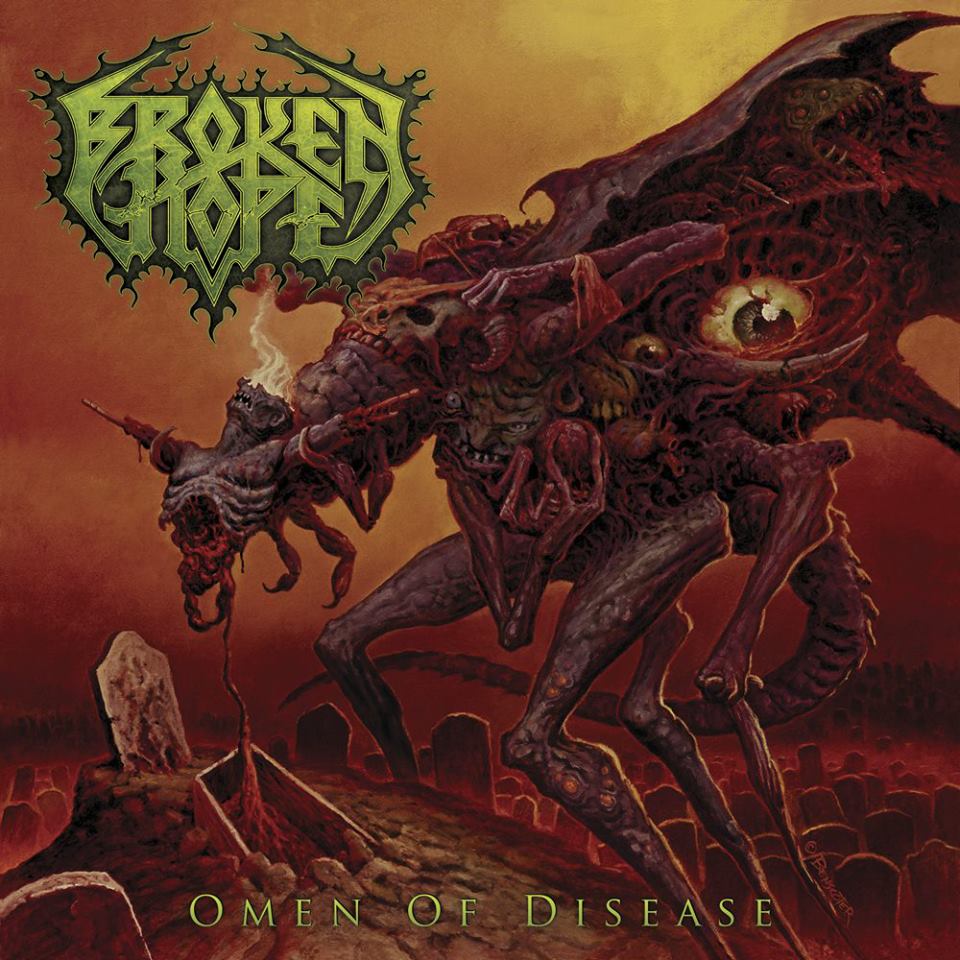
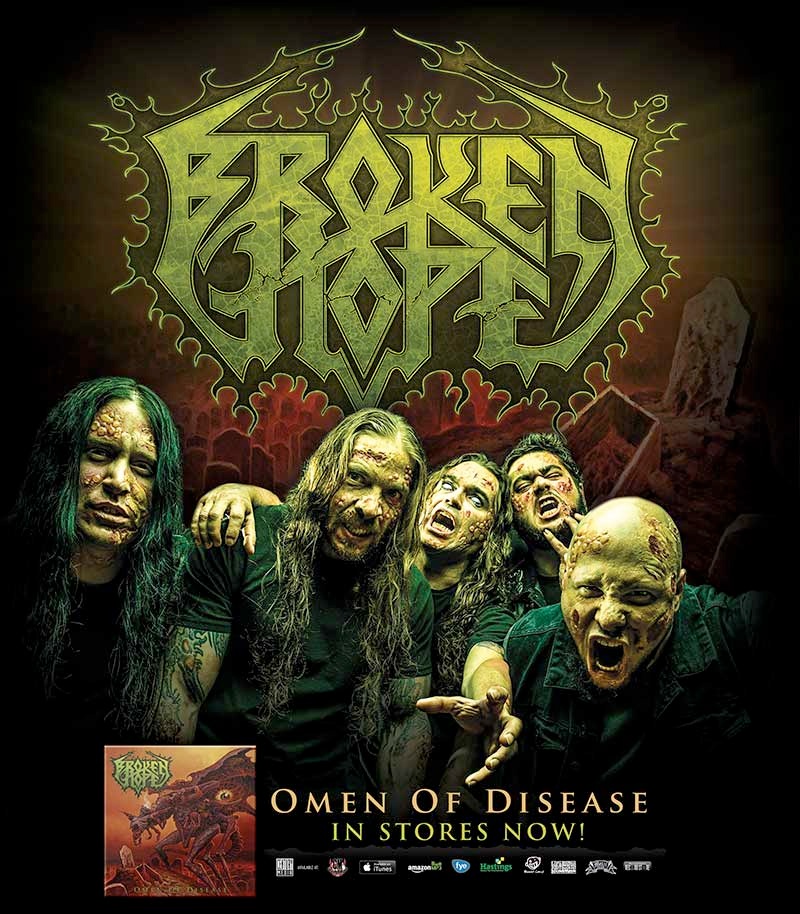
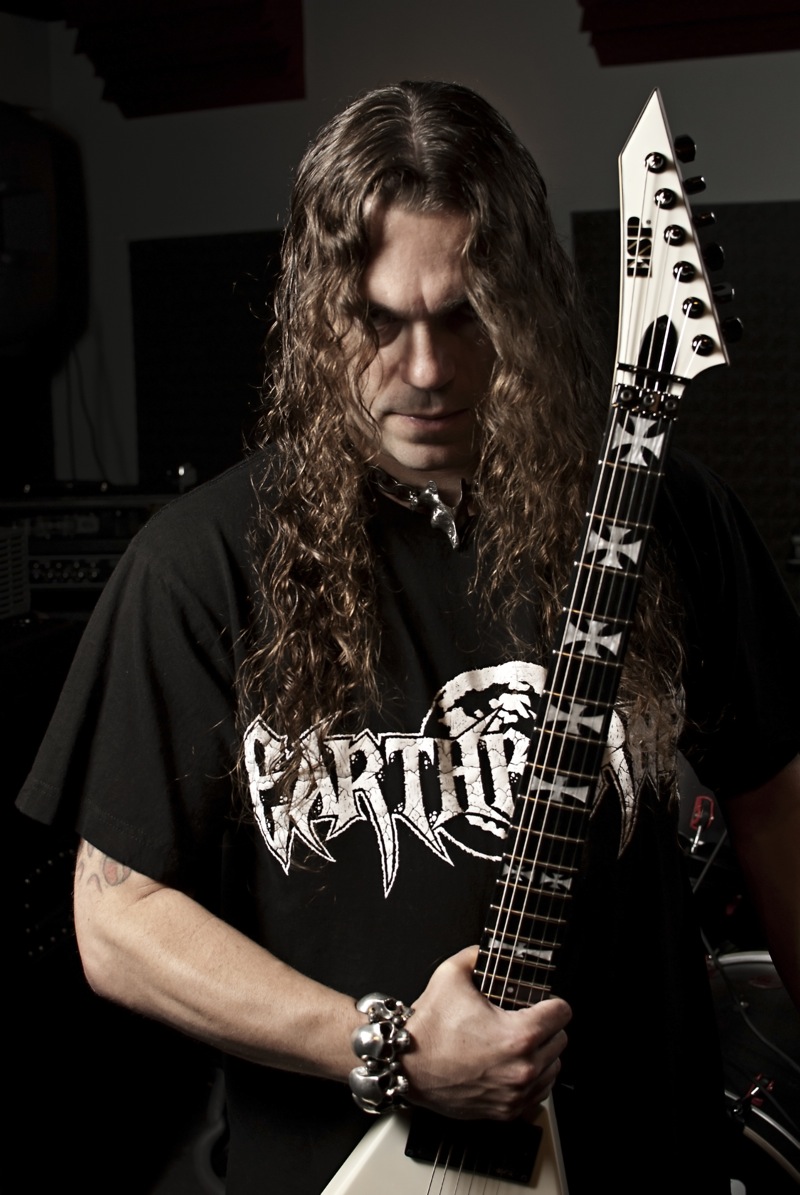
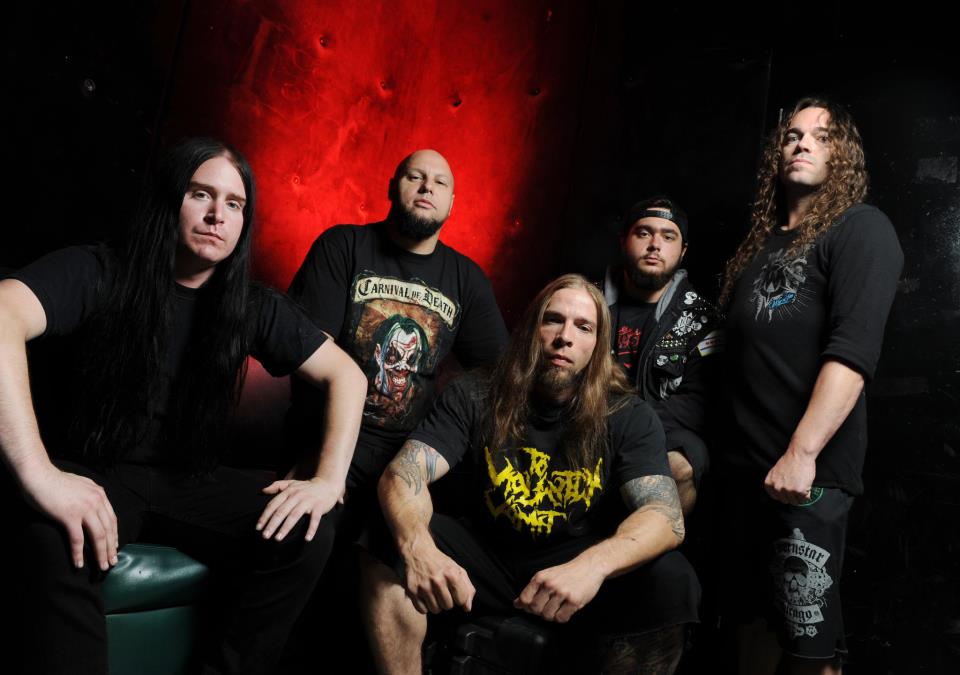
“I loved working with David Gilmour… but that was an uneasy collaboration”: Pete Townshend admits he’s not a natural collaborator – even with bandmates and fellow guitar heroes
“This guy kept calling saying, ‘I’ve never been in a band before, but I’m the best guitarist ever.’ When I heard him play it was like a fire from heaven”: The life and times of Killing Joke visionary Geordie Walker – the guitar hero’s guitar hero







![[from left] George Harrison with his Gretsch Country Gentleman, Norman Harris of Norman's Rare Guitars holds a gold-top Les Paul, John Fogerty with his legendary 1969 Rickenbacker](https://cdn.mos.cms.futurecdn.net/TuH3nuhn9etqjdn5sy4ntW.jpg)


